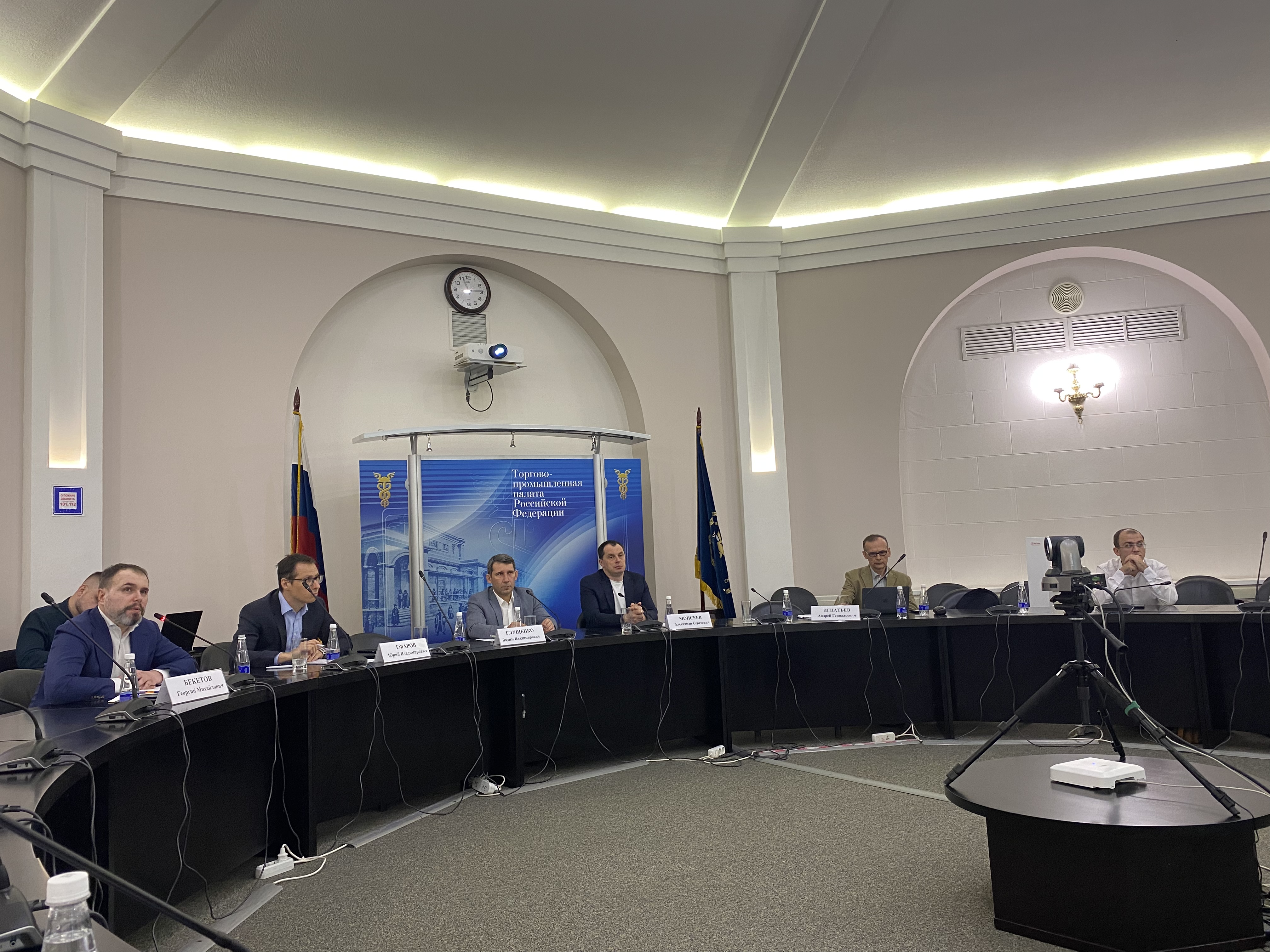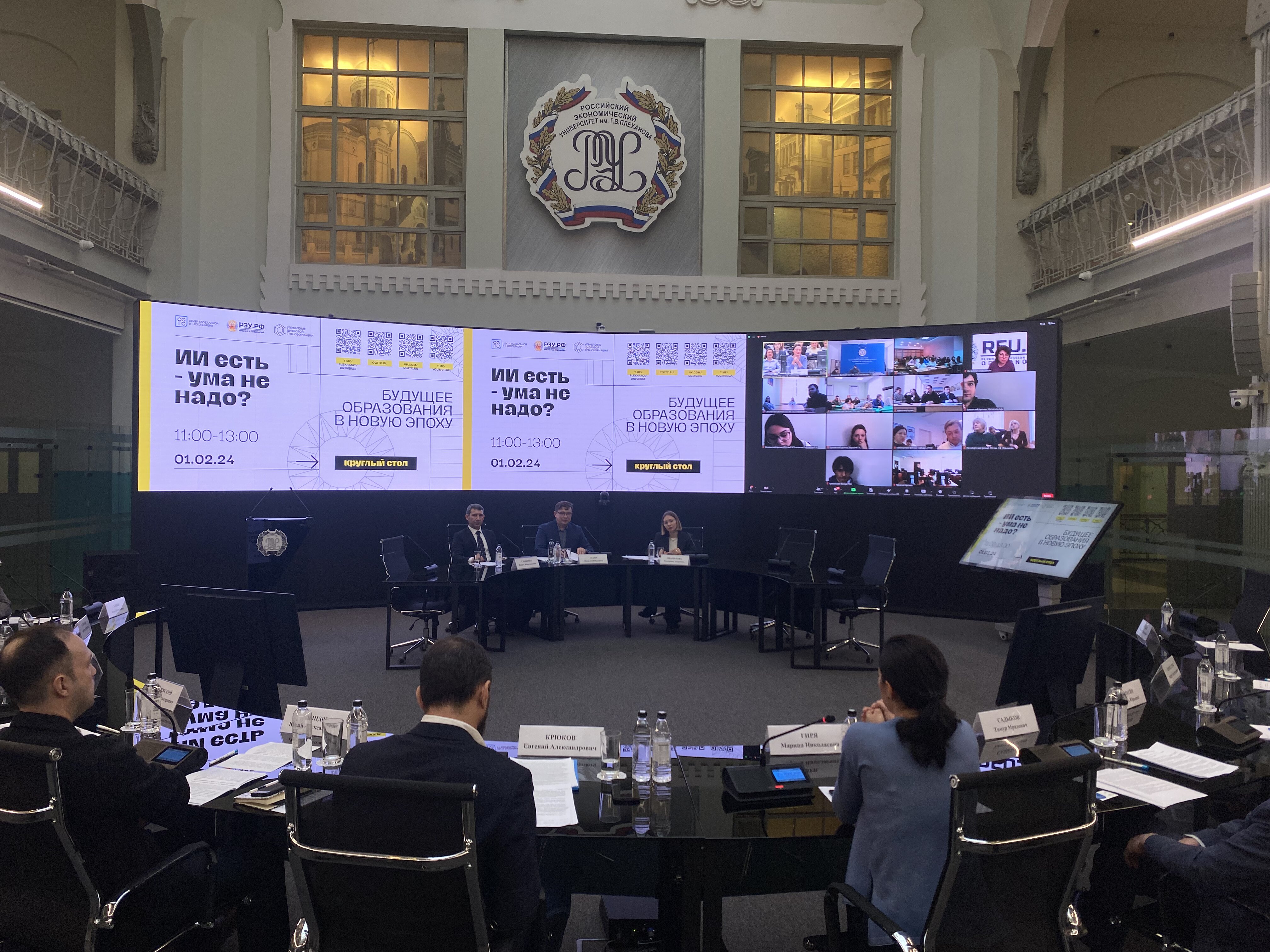This is the second event that has focused on the challenges facing Russia’s IT industry and measures aimed at addressing them. The first roundtable, “New Challenges and Priority Anti-Crisis Tasks Confronting the IT Sector,” was held on April 14, 2022. This is how the CGITC carries out real-time monitoring of the ways domestic IT market players are working and developing their businesses amid unprecedented sanctions and pressure exerted on them by unfriendly countries, identifies the most acute problems and organizes discussion on the matter.
Deputy General Director of the RITDF Ilya Kostunov, Deputy General Director of Gazprom Media Alexander Moiseev, Head of External Communications at ANO Competence Center for Import Substitution in the Field of ICT Georgy Beketov, Head of Analytics at the Center for Global IT-Cooperation Andrey Ignatiev, and CEO of Easy Report Yury Efarov joined the discussion, which was moderated by Vadim Glushchenko, Director of the Center for Global IT-Cooperation.
Ilya Kostunov spoke on the grant support currently provided to IT companies by the RITDF. He pointed out that during the last few months, the foundation has been willing to meet market players halfway and simplified the grant application process. “Today all development institutions providing grant support are generally working on making procedures more transparent and easier for applicants and, therefore, imposing minimal bureaucratic burden on participants as well as minimal burden not related to the implementation of IT projects,” he added.
Georgy Beketov presented explicit statistical data on import substitution in the IT industry in the first half of 2020 compared with the same period last year. “The percentage of domestic solutions procurement has increased from 21.5 % to 49.3 %. This, of course, has happened due to, among other things, the withdrawal of foreign companies from the Russian market and impossibility of obtaining further licenses.” He then added that foreign software keeps being procured by state-owned enterprises, inter alia, their percentage being approximately 40 %. That said, there are enough substitution solutions in Russia already, however, they differ in terms of maturity level. There is no doubt that it will not be easy to substitute everything, these tasks are difficult yet attainable, according to Mr. Beketov.
The topic of relocation of IT experts and the effect this new reality has had on the IT industry was not overlooked by event participants either. Head of Analytics at the CGITC Andrey Ignatiev presented an analytical review titled “Business Conditions in Foreign Countries Suitable as Potential Relocation Destinations for IT Companies,” which was announced earlier, at the SPIEF 2022. Not only does the review assess specific indicators in ten countries under study, but it also outlines important IT business development factors and summarizes information regarding existing international indices that are being used to measure the attractiveness of countries’ IT industries. It analyzes the circumstances of relocation and the reasons some of the IT experts who left the country in February or March returned to the homeland. “A mobilizational field-specific strategy can be designed only through attempting to look beyond the event horizon, on the basis of an objective view of the world, complex search, and the comprehension of the philosophical, economic, and sociocultural process,” Mr. Ignatiev concluded.
Special emphasis was placed on the topic of cyberattacks on domestic services, that have spiked drastically. Alexander Moiseev spoke on the way his team had handled a large-scale cyberattack carried out against Rutube in May; he also pointed out that major companies should be open about such issues and share their experience instead of “sweeping it under the rug.” “Luckily, we began to prepare ourselves for an attack last year, and this is precisely the reason why we managed to recover so quickly. However, every attack is a question of investments and interest in the attack itself.” Mr. Moiseev illustrated the situation with a particular example: “When attackers were hacking Rutube and trying to delete components, we were disabling the components. If we’d been familiar with their algorithms earlier, then, of course, we would’ve been able to work more quickly and prevent a great deal of that. However, their algorithms were pretty fresh as well, so it is important to keep up with the times.”
Yury Efarov, who represented small and medium-sized IT businesses, expressed his opinion on the current situation and what is happening with small companies right now in general. “In terms of technology, we haven’t even noticed the punch. All our frameworks were open, that is, kept performing seamlessly. As for the business part, we mostly worked with commercial companies, but since they don’t really understand what to do yet, they recently suspended purchases. Product promotion is the second problem. Our marketing is incomparable to that of Microsoft and what have you. Marketing grant budget is not enough to make a startup known; it is necessary to work closely together with major media,” he highlighted. Mr. Efarov added that he was thinking of the next year with concern, as many companies are now reconsidering their plans for the near future and shutting down some of their projects.
Summing up the discussion, Vadim Glushchenko highlighted that a lot has been done over the past several months both by the state and by the IT sector itself to adapt to the complicated new realities. There is without doubt a plethora of unresolved acute problems, but the state’s attention to and support of the industry is encouraging. And, as participants of the roundtable rightly pointed out, we should not fixate on the problems of the industry: merely “taking the punch” is not enough, being ready to “fight back” is important as well.





